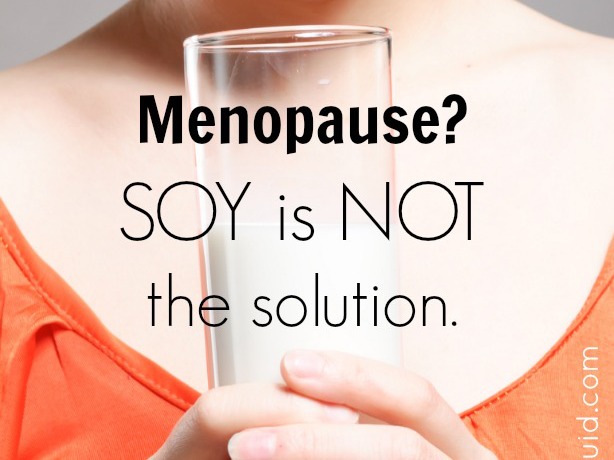
Call me a scrooge, but I'm not personally a fan of those cynical ‘over-the-hill' birthday cards that lament each passing year as an embarrassing inevitability.
Having lost my dad to cancer when he was only 57 and I was still a teen, I have a deep respect for the privilege of growing older. While I admittedly am not in love with my new grey hairs and smile lines, I do appreciate the banked life experiences and little sparks of wisdom that seem to be sprouting too.
I say this, and then my female friends and patients who are going through ‘The Change' just snigger.
“Just wait,” they say, and then they start listing their menopausal complaints: hot flashes, night sweats, weight gain, dryness, fatigue, aches and pains, and more.
According to statistics, the average women endures menopause for an average of five years – sometimes as short as 10 months, but sometimes even a decade. As women, are we really destined to suffer though menopausal symptoms as a token of age?
Why menopausal symptoms happen
Through your fertile years, the ovaries produce hormones that are not only responsible for fertility and sex drive, but also play a big role in overall well-being. In your late 30s, your egg supply begins to decline in number and quality, and with it your hormone production changes, often bringing shortened menstrual cycles and increased PMS symptoms.
Generally in our early 50's – but for some much earlier or much later – perimenopause is marked by irregular periods. During this transitional period, other symptoms such as weight gain, hot flashes or fatigue may flare as the ovaries naturally slow down their hormone production, until our bodies begin to self-regulate.
Fortunately, there are other places in the body that also produce these hormones, and – if they are functioning optimally – they can pick up some of the slack.
How soy can wreak havoc on hormones
Plant estrogens (phytoestrogens) and chemical estrogens (xenoestrogens) can mimic the function of estrogen and bind to the body’s hormone receptors. For menopausal women who may not be producing enough hormones, it might sound like a good thing, but some phytoestrogens can actually disrupt your body’s natural ability to balance hormones on its own.
There are many different phytoestrogens, the major types being lignans, coumestans, isoflavones, and resorcylic acid lactones. According to Susan Weed, the master herbalist, “Phytoestrogens actually appear to protect tissues from the cancer-causing effects of xenoestrogens and other hormonal pollutants…Isoflavone, however, when isolated (usually from soy) has the opposite effect: in the lab it encourages the growth of breast cancer cells.”
Soy products contain the highest amounts of isoflavone. There are many studies that show that not only does isoflavone cause severe hormone disruption and thyroid suppression, but it can also stimulate breast cancer activity. (source)
A recent study published in the Archives of Internal Medicine examined 248 menopausal women over a 2 year period to see if 200 mg of isoflavones per day would help alleviate menopausal symptoms. The results of this study showed no difference in symptoms. In fact, more women taking isoflavones experienced hot flashes than the women who took a placebo.
Despite studies like the one above, many women still find that soy successfully helps to manage their menopausal symptoms – but the potential risks are certainly not worth the benefits when there are many other safe and effective alternatives.
What to use instead of soy for menopausal symptom relief
Even if you don’t eat tofu or drink soy milk, chances are if you eat processed foods you are eating soy. These foods often contain isolated soy – double whammy – so eliminating junk is a big step to keeping your endocrine system healthy.
(Note: fermented soy – unpasteurized miso, soy sauce, tempeh, and natto – is the form most commonly consumed by traditional Asian cultures, and is actually safe and beneficial to human health in small amounts.)
Besides just cutting out the junk, there are many ways to support healthy hormone production and provide menopausal symptom relief.
Herbs
Phytoestrogenic herbs (other than isoflavones) can be helpful in balancing hormones when used only as needed – which can be as often as daily for several months.
Black cohosh
Many women find black cohosh to be quite effective for menopausal symptom relief, and preliminary studies have found this herb to be both effective and safe for medicinal use. I love this brand for both their menopause and PMS formulas.
Red clover
In addition to containing all four of the major types of phytoestrogens, red clover is rich in minerals and is a well-known anti-cancer herb. Make an herbal infusion by steeping a handful of dried red clover in water overnight. In the morning, strain out the flowers and drink the strong tea throughout the day.
Chinese medicine
Chinese herbal formulas can be a great option for menopausal symptom relief, because the formulas can be customized to treat your specific pattern and underlying constitution. The only catch is that you need a Chinese herbalist to make a complete diagnosis and recommend the right formula for you. For example here are a few of the patterns that may arise with menopause:
Liver Stagnation is accompanied by clots, short or irregular cycles, breast tenderness and lumps, anger, frustration, depression, and PMS.
Kidney and Liver Yin Deficiency is accompanied by hot flashes, sweat, palpitations, thirst, weak knees, and low back pain.
Qi and Blood Deficiency is accompanied by dry skin, vaginal dryness, dizziness, insomnia, fatigue, digestive symptoms, muscle weakness, poor vision, scanty menses, or excessive bleeding.
Probiotics
In order for beneficial phytoestrongen-rich herbs to be effective, it is essential that you have healthy gut flora to digest them. Naturally fermented foods such as yogurt, miso and sauerkraut support the flora in the gut and help you assimilate phytoestrogens. Check out how to make your own probiotic-rich foods here.
Additionally you should consider taking a probiotic supplement – especially if you haven't been eating fermented foods on a daily basis or your symptoms (whether digestive or hormonal) are severe. This one and this one are my current favorites.
Fats
Healthy fats are essential to health for so many reasons, but when it comes to aging gracefully, fats are extra important to reduce inflammation, maximize nutrient absorption, manage hormone production and balance, protect bone and teeth health, and extend the suppleness of your skin.
And, if you're new here, when I say ‘healthy fats' I'm not just talking about olive oil and avocados. Coconut oil, butter and beef (grass fed), even bacon from properly raised pigs are the superfood fats. Two to consider…
Fish oil
The omega-3s in fish oil supplements can help reduce hot flashes, improve sleep, regulate mood, and so much more.
Personally, I use and recommend this cod liver oil, which is the only minimally processed oil of its kind on the market. Because of the way it is produced, this cod liver oil is not only rich in omega 3's, but is also one of the best sources of naturally occurring vitamins D and A – two fat-soluble nutrients essential for health.
Read more about the health benefits of cod liver oil here.
Full fat raw dairy
There's a lot of misunderstanding around dairy but rest assured, the problem is mostly to do with the source. Do your research and always choose dairy from pasture-raised animals. Organic alone is not enough.
The cholesterol, calcium and vitamin D found in full-fat dairy are necessary for building progesterone, which is commonly deficient in women who suffer from hormone imbalances. These nutrients are essential for a healthy endocrine system, including stress reduction.
Read more about the benefits of pasture-fed, raw dairy in this post.
Phew! So there you have it. There's no need to count on soy for menopausal symptoms when healthier and safer options abound.
What natural remedies do you use to help with menopausal symptom relief?



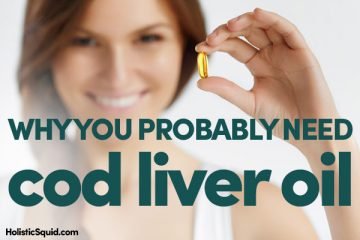
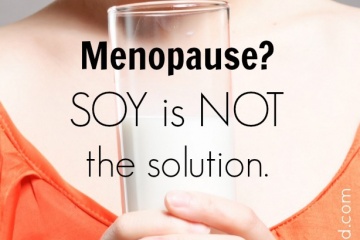
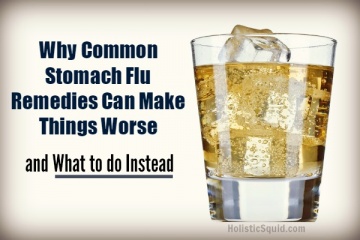

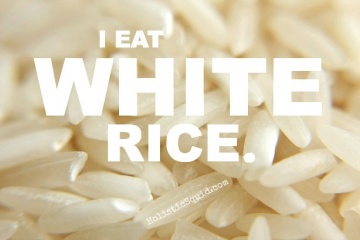

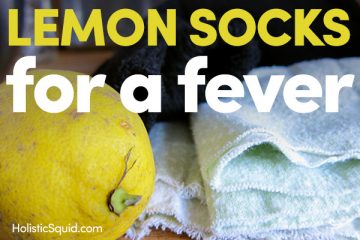

thanks for this! I agree.
I’m just *hoping* to be able to go through menopause. I’m 42 years old now and really want my cycle to come to a screeching halt. I don’t often have soy products, but once in a blue moon I enjoy Starbucks Chai Latter with Soy. I’m not sure yet which natural option I’ll choose, but I do have Black Cohosh already because it helps with PMS symptoms. Thank you for the research information.
Is there a good multi supplement (not typical vitamin) that includes these or one that you recommend for menopause support ? I have been taking oceans 3 and it helps a lot but I know it isn’t the best. I want to avoid taking 5 different things if I can. Thanks !